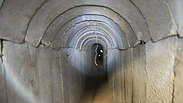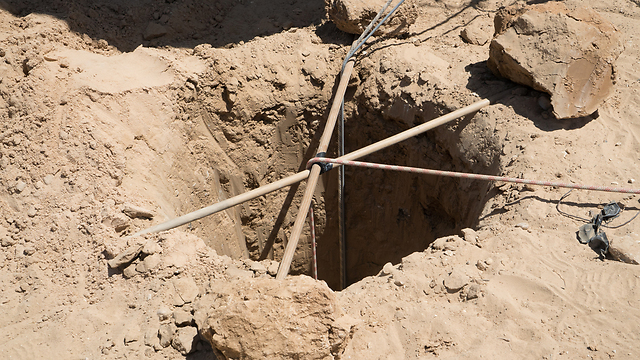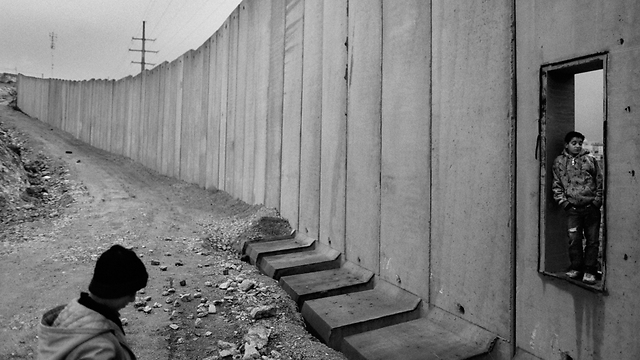
Burying NIS 600 million in the ground
Op-ed: The Israeli government is set to invest hundreds of millions in the initial phase of establishing a Gaza tunnel blockade. The problem is that there's no money allocated for the rest of the blockade; if the West Bank border fence is any indication, there never will be.
A few months ago, my colleague Nahum Barnea exposed the government's decision to establish a new underground blockade, around the Gaza Strip. It was to be several dozen meters deep, and consist of concrete, sensors, and the like. A massive investment of NIS 2.7 billion was discussed for the project. The blockade was meant to compliment the IDF's future tunnel detection systems, and back them up in case they didn't meet their mark.
The ministries of Defense and Finance each have NIS 300 million in order to begin its implementation on a fairly small stretch of land. This first part is intended to serve as an experiment for the wider program, which would explain why it's several times more expensive than the other parts set to be built later on. So far, so good. But after this, the Defense Ministry returned to its traditional "trust me, it'll be fine" method of operation: We'll start, it'll work itself out, all will be ok.
But it won't work itself out, because as of yet there is no budgetary allocation – anywhere – for the rest of the blockade.
If, and when, the work in the initial section of the blockade ends successfully, a bid is set to be issued to three large construction firms for the establishment of the remainder of the 60 kilometer perimeter around Gaza. The companies that win the bid will have to purchase special equipment from overseas and it is widely believed that they will begin digging once given the green light. But it isn't so. Suddenly, they'll find out that there's no money for the project; that no one in the Defense or Finance ministries is interested in allocating more money towards the project.
The defense minister's spokesperson – answering our inquiry – was convinced that a budgetary solution would be found eventually, as part of some agreement between the PM's office and the finance minister's office. According to him, the defense minister is working on approving the budgetary allocation. Nonsense.
It's doubtful that there's anyone in the defense minister's office, including the minister himself, who knows how much money has been spent to date on the West Bank border fence. Well, here it is:
The roughly 500 kilometers of border fence have so far cost about NIS 13 billion, with hundreds of millions more being streamed in every year for maintenance. But the fence hasn't justified the investment, since it has not been completed across a 280 kilometer area in the region of Mount Hebron, allowing infiltrations into Israel to continue.
Just a reminder: The establishment of the border fence was decided upon by Prime Minister Yitzhak Rabin in 1995, and its construction actually began in 2002 – following a catastrophic wave of suicide bombings. As mentioned, it was never really completed – and that's exactly what's about to happen in Gaza. We'll stay stuck with a short area covered by our blockade, and a bunch of arguments: Should the construction be paid for out of the Defense Ministry's budget, since the blockade's function will be fighting terrorism? Or perhaps another part of the state budget, since the defense establishment claims this is a project on a national scale?

By the way, regarding the PM's recent bragging about the Egypt border fence project: It should be mentioned that the project came about over a decade after it was recommended for implementation by the IDF—for security reasons. The order was given only once issue of infiltrators arose. That is to say, what sparked the project's actual beginnings was a political issue.
Now that precious lip service for the Gaza blockade has been paid, the PM and minister of defense are probably both praying that Hamas suddenly decides to stop digging its tunnels, or that the tunnels themselves all magically collapse.
How on earth are they going to come up with the money? Well, it'll probably happen when—god forbid—a disaster occurs, especially if it has political ramifications. For the time being, they'll bury hundreds of millions of shekels in the ground, allowing Hamas to freely dig around their short-range experimental obstacle.











